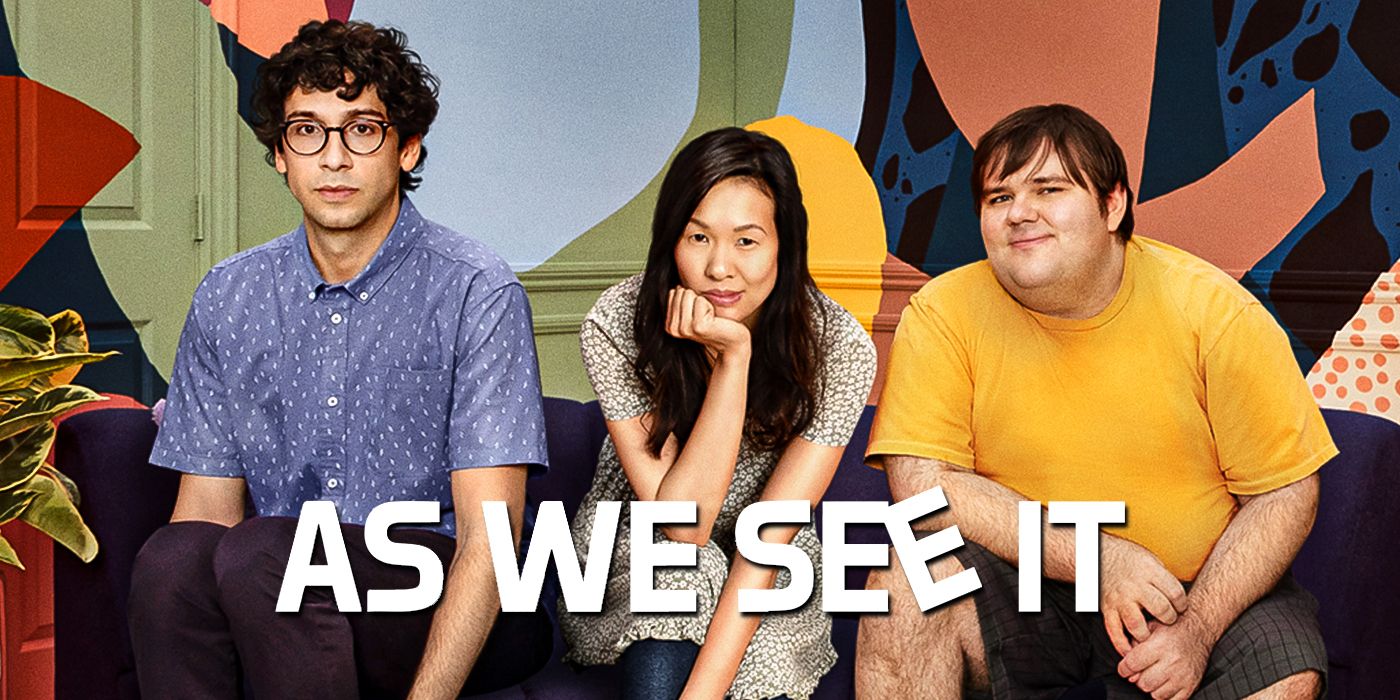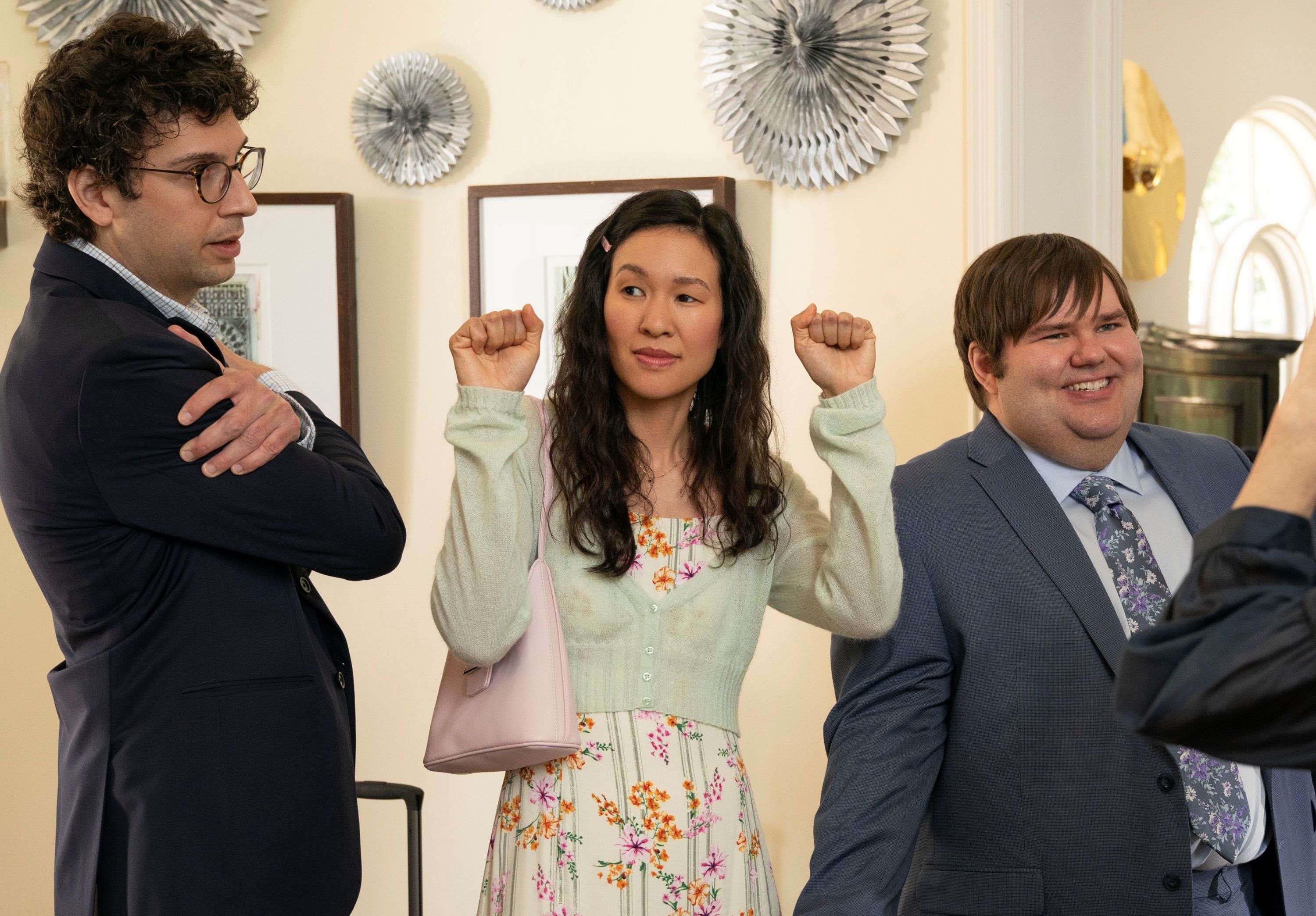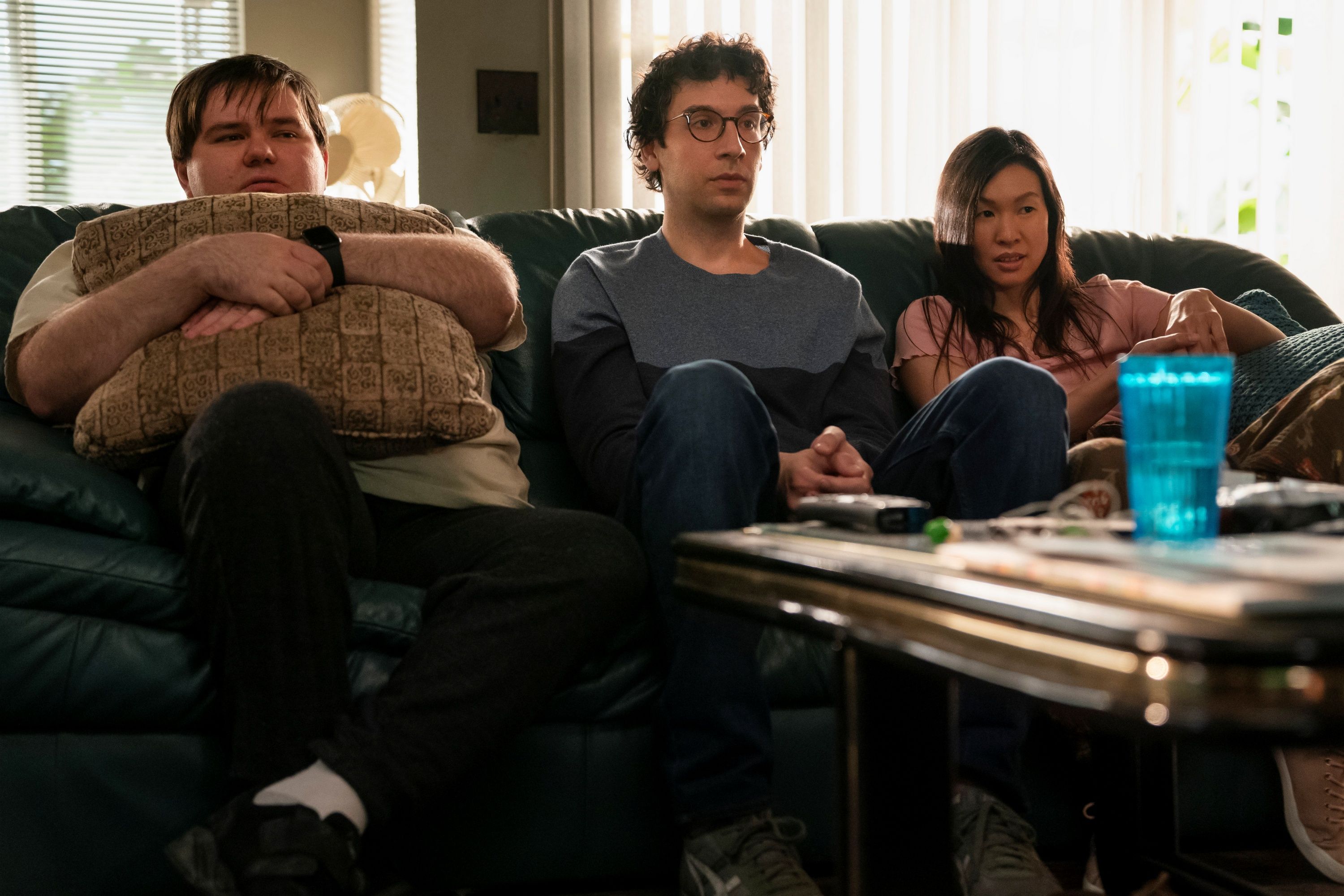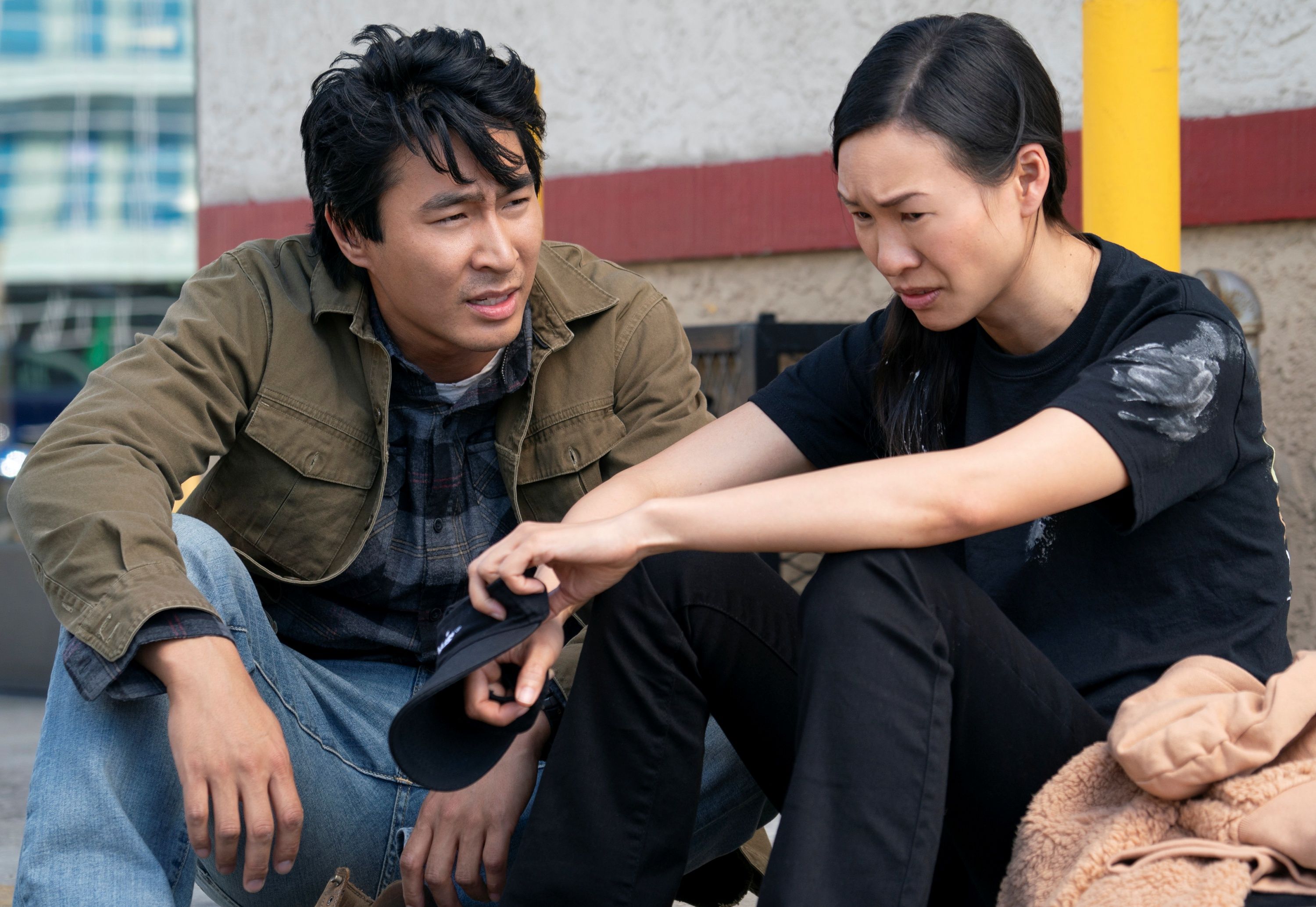From showrunner Jason Katims (Parenthood), the Prime Video original series As We See It is a beautiful coming of age story about twenty-something roommates Jack (Rick Glassman), Harrison (Albert Rutecki), and Violet (Sue Ann Pien), all on the autism spectrum and each trying to carve out a place of their own in the world. Navigating jobs, making friends, and falling in love is both exciting and scary for this trio, especially when all you truly want is independence and acceptance, but the patience and understanding of others isn’t always easy to come by.
During this interview with Collider, co-stars Glassman, Pien and Rutecki, who will break your heart and inspire you as you fall in love with each of them, talked about what they liked about playing their characters, how traits that are common for someone with autism can be universally relatable, the support this cast has for each other, and how you can deal with challenges in life through love and kindness.
Collider: Albert, when you got this, what did you like about Harrison? Were there things that you just immediately liked about who he is?
ALBERT RUTECKI: I liked his personality. He’s definitely a very sweet guy. And I like the journey that he goes on, throughout the season.
Rick, what did you like about Jack?
RICK GLASSMAN: What I liked about playing Jack was that, as I’ve gotten older, I’ve learned some tools of behavior and social skills to, for better or worse, minimize. With this show, I got to do those things and not have to worry about the results. I called Sue Ann and Albert last night, preemptively apologizing and saying, “I’m sorry, if I make too many jokes.” I don’t know how I’m gonna be received. There is a fear, as I’ve become aware of these things, and it prevents me from always feeling comfortable being myself. But since the character wasn’t that way, it helped me, as a person, not be that way. Luckily, I’m around people like Albert and Sue Ann, who are so accepting and fun that it just made it easy, relatively, to make choices and to be what I have learned could come across as too aggressive.
Sue Ann, what do you like about Violet?
SUE ANN PIEN: Violet is amazing. I’m really lucky. I share so many of the internal struggles that Violet goes through, so it was so easy to play her. I’ve been left on a date, where someone told me they were gonna go to the bathroom and not come back. The fact that Jason [Katims] had foresight to write about that, when that’s probably gonna be a dating experience of someone on the spectrum, was fantastic. I’m married. I have a wife right now, so that’s different from Violet. But when my wife and I went on our first date, she said she was gonna go and put money in the meter, and I was pretty certain she wasn’t gonna come back. She did come back, and now we’re married, but you never know how that’s gonna work out. She’ll say something like, “You have a nice life now,” and I feel like it will be the last time I see her or talk to her.
Rick, when this season starts, Jack is someone who’s not doing very well with connecting with other people or making friends. Is he somebody who wants to make friends? Is it a situation where he’s just afraid, or would he rather just not ever have to do that?
GLASSMAN: He’s very frustrated when people don’t understand things that come so intuitively to him. When things aren’t intuitive for him, he shuts down. He says to his dad that he doesn’t care about friends, and he doesn’t wanna make friends, but that’s obviously not the case because when he makes them, he loves it, and it helps him grow and expand. This is a character trait for someone with autism, but I’m sure many people can relate to something being hard, so you just make yourself believe that you don’t want it, or you don’t care, and you self-sabotage. With the limited tools that he has, as a 20-something person with autism, but also just a person who’s in his 20s who has only so much life experience, he just makes it about, “Who cares? That’s stupid, I don’t need that,” when everybody needs that. Autism or otherwise, you need connection and you want connection. The obstacles are communication, not that you don’t want to have it.
Sue Ann, we get to see Violet not having luck with romance. She thinks she knows what she wants, and she thinks she knows what she doesn’t want. Why do you think romance is so important to her?
PIEN: It’s such an important thing in our society. That’s how you know that you’re coming of age because everyone’s obsessed with it, at that age. For violet, that’s the signal that she’s normal. She’s like, “If I can get that normal boyfriend, then I’ve done it.” I can relate. You’re like, “If I can just get a relationship going, then I’ll be like everyone else.” That’s Violet. I love Violet. It brings me back to having to date and how I’m so glad that I don’t have to do that ever again, thank God, because it’s stressful.
Albert, your showrunner Jason Katims told me that you’d never been to Los Angeles, and you’d never been on a professional set. What’s it like to have an experience like this, where you’re acting, and you’re one of the main characters on a TV show?
RUTECKI: It’s crazy. I was really scared at first, but it ended up being a lot of fun to do this. I did not expect to get a role on a TV show on my first TV audition. It was all a really good experience with the cast and crew. I ended up genuinely enjoying the script. It was all very good.
Having this cast surrounding you, did it feel like having that support there also really helped you?
RUTECKI: Yes, definitely. I had some days that were not so good, during filming, and the cast and crew was there for me. I ran the gamut from being stung by a stupid hornet, and Rick and Sosie [Bacon] singing a dumb song to make me feel better, or when I experienced a family tragedy, and it was a little hard to act. I got to just relax a bit with the cast members and try to recenter. We were there for each other on the set.
Rick, what was that like for you? Did you guys have a moment when you were all together, where you realized, “Okay, this might work, I actually like my co-stars”?
GLASSMAN: Yeah. I couldn’t stand Albert until the last week of filming, actually. Now, I’m just kidding. It just made me feel bad that he said that we sang a stupid song. It was very well done, honestly, and we had harmonies. I’m a musician. But we went through this experience of testing together and, though it was one day, it was an intense day. It was eight hours and there was also a lot of emotion, both in the scenes that we were playing and the fact that this is a big deal. As actors, we only get so many at bats to have an opportunity as cool and great as this. We went through this together, and then when I found out who else booked it, I knew them already. It was like, “Yes! Cool.” And then, we waited to finally film the show. We got to come back together and share this together. It was a lot of hurry up and wait, but I made friends with them, which is nice because I don’t have many friends that aren’t just straight-up comedians. I also don’t have many friends that are on the autism spectrum. Albert said the same. We all got to experience different sides of autism together while telling a story on it. It was a bonding thing, at least for me, to go through together.
RUTECKI: One of the things that I remember is when Rick and I left about the same time, and he asked me if he did something wrong because I laughed. I was like, “No, that was in the script.” And he was like, “You’re a good actor.”
GLASSMAN: Laughing is a really hard thing to fake. You can tell a fake laugh. I feel like I always can. But that was a fake laugh. That’s hard to do.
Sue Ann, how was it to be the girl amongst these two guys? What was it like to find your place with them and to keep them in line?
PIEN: That was really cool. I think girls on the spectrum probably have really different experiences of life. There’s this misunderstanding that girls aren’t on the spectrum, but that’s not true. They are, they’re just much better actors. That’s what I did, my entire life. You can tell a lot about who my friends are by how I’m showing up. I would just take on their mannerisms, accents, facial ticks and differences. Everything I do is a performance, when I’m being social. It’s such a contrast to what Harrison and Jack are experiencing. Violet is also very emotional, at times, and shows a very different side of the spectrum that we don’t all get to see in its full expression, which I think is really important for families to know that they’re not alone and that this happens everywhere, all the time, to people. There’s a way to deal with it through love and kindness.
When you do those emotional scenes, do you do anything to prepare, as an actor? Are there tricks that you do for that?
PIEN: Yeah, you don’t just show up on set and do that. That takes a lot of work.
GLASSMAN: There were a few times on set where I would ask what’s wrong and if she was okay, and she was like, “No, in four hours, I’m filming a scene where I have to be depressed, so I’m just feeling miserable now to give a good performance.”
PIEN: I have to do my preparation. I have to go into the craft. I’ve been studying acting, and I have coaches that are really great. I have to do my emotional prep to get to that.
As We See It is available to stream on Prime Video.




